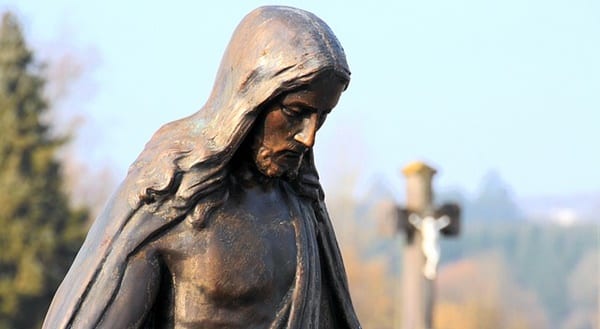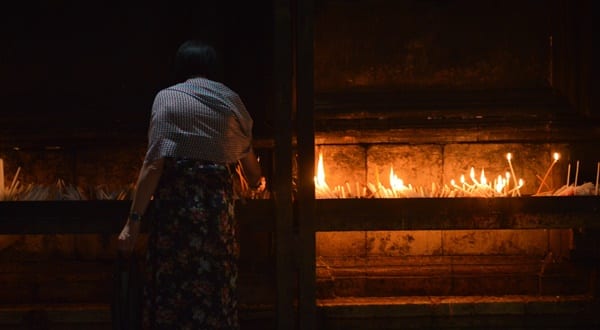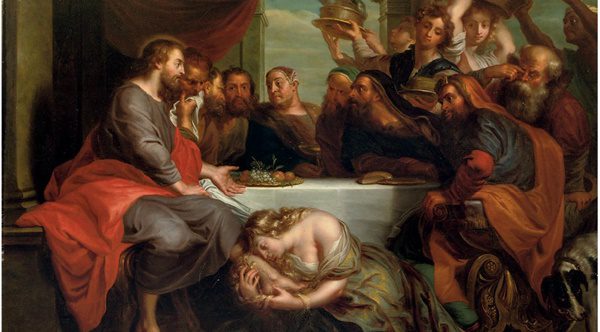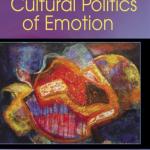“The opposite of fear is hope,” writes Jon Meacham in his latest book, The Soul of America: The Battle for Our Better Angels. He explains that, “Fear feeds anxiety and produces anger; hope, particularly in the political sense, breeds optimism and feelings of well-being … Fear points at others, assigning blame; hope points ahead, working for a common good. Fear pushes away; hope pulls others closer. Fear divides; hope unifies.”
Last week I traveled with my family to Washington, D.C. I took Meacham’s book with me, which proved to be an indispensable guide to the soul of that great city and to my own soul.
No matter where you stand on the political spectrum, odds are that you feel some fear and anxiety about the current state of American politics. We are a nation that seems to become more polarized by the day. I experienced this polarization on our family trip as I walked through the White House and the Capitol. I’m not necessarily proud of this, but I admit that whenever I saw one of those red “Make America Great Again” hats, I wanted to puke.
Which is a sign that I’m caught up in the polarization that is damaging our country.
Meacham’s book provided a boost of hope as my family and I explored those two great buildings, along with the Lincoln Memorial, the African American Museum, and the Martin Luther King memorial. Indeed, fear has polarized us in the past, but we have survived. Or as Meacham puts it, “History … shows us that we are frequently vulnerable to fear, bitterness, and strife. The good news is that we have come through such darkness before.”
My greatest anxiety is that the United States is currently being run by the politics of fear, not the politics of hope. We live in an age of scapegoating where we divide the people of the world into good and evil. This Manichaean worldview is based of fear – fear of Muslims, Jews, immigrants, Latinos, journalists, politicians, the poor, the rich, Democrat, Republican – you name the group and someone has likely made them into an enemy of the people.
Meacham doesn’t provide a hagiography of American history. He brings to light the long history of the politics of fear that continue to infect the U.S. He provides detailed accounts of racists like Strom Thurmond, fear mongers like Joseph McCarthy, and drivers of populist resentment like Huey Long.
He tells the truth about those men and their movements, but he doesn’t allow us to scapegoat the individuals. For the politics of fear is bigger than any one individual, including any one president. Meacham quotes the great CBS journalist Edward R. Murrow, who spoke about the dangers of McCarthyism. Murrow’s words resonated as I sat reading them in my D.C. hotel room,
The actions of the junior Senator from Wisconsin (Joseph McCarthy) have caused alarm and dismay amongst our allies abroad, and given considerable comfort to our enemies. And whose fault is that? Not really his. He didn’t create this situation of fear; he merely exploited it—and rather successfully. Cassius was right. “The fault, dear Brutus, is not in our stars, but in ourselves.”
But the hope lies in ourselves, too. I found hope in the words of Harry Truman that Meacham quotes. While we must resist the temptation to mimic the politics of fear, thus scapegoating our opponents for being scapegoaters, we must also tell the truth about divisive action and rhetoric. Truman did just that when he ran against the segregationist Strom Thurmond in the 1948 presidential election.
You can’t divide the country up into sections and have one rule for one section and one rule for another, and you can’t encourage people’s prejudices. You have to appeal to the people’s best instincts, not their worst ones. You may win an election or so by doing the other, but it does a lot of harm to the country.
While hope lies in ourselves, a more honest reading of Meacham’s book recognizes that hope is bigger than ourselves. He quotes Martin Luther King, Jr’s Lenten sermon at the National Cathedral. As with all of King’s sermons, he pointed beyond the polarization of fear and hatred of his time. He inspired hope with these words about human interconnectedness,
We are tied together in the single garment of destiny, caught in an inescapable network of mutuality. And whatever affects one directly affects all indirectly. For some strange reason I can never be what I ought to be until you are what you ought to be. And you can never be what you ought to be until I am what I ought to be. This is the way God’s universe is made; this is the way it is structured.
King and the other great leaders of American history knew that the American motto, e pluribus unum, out of many one, means that we are interconnected. We are all in this together. But one of our greatest struggles has always been between hope that unites and fear that divides. Good leadership, Meacham writes, “is the art of the possible, and possibility is determined by whether generosity can triumph over selfishness in the American soul.”
That is the question I wrestled with inside of my own soul as I walked through the White House and the Capitol, side by side with people wearing red “Make America Great” hats. My instant reaction was to fear those wearing the hat. Then I move to anger because, damn it, it’s easy to criticize America, but this nation has been great and our greatest leaders have inspired us to be even greater – to progressively form an even more perfect union.
But my fear led to anger, which led to scapegoating and polarization. And then I simply became part of the problem.
The truth that Meacham claims is that we don’t need any more fear and scapegoating when dealing with the issues before us. We need to resist tribalism and the pull toward polarization. As with those of our past, we need to be bold as we come face to face with the crises of the moment. We need to realize that no matter what hat we wear, we are all bound up in a single garment of destiny. And above all, we need to move from fear to hope.
Copyright: ssilver / 123RF Stock Photo
Stay in the loop! Like Teaching Nonviolent Atonement on Facebook!
















